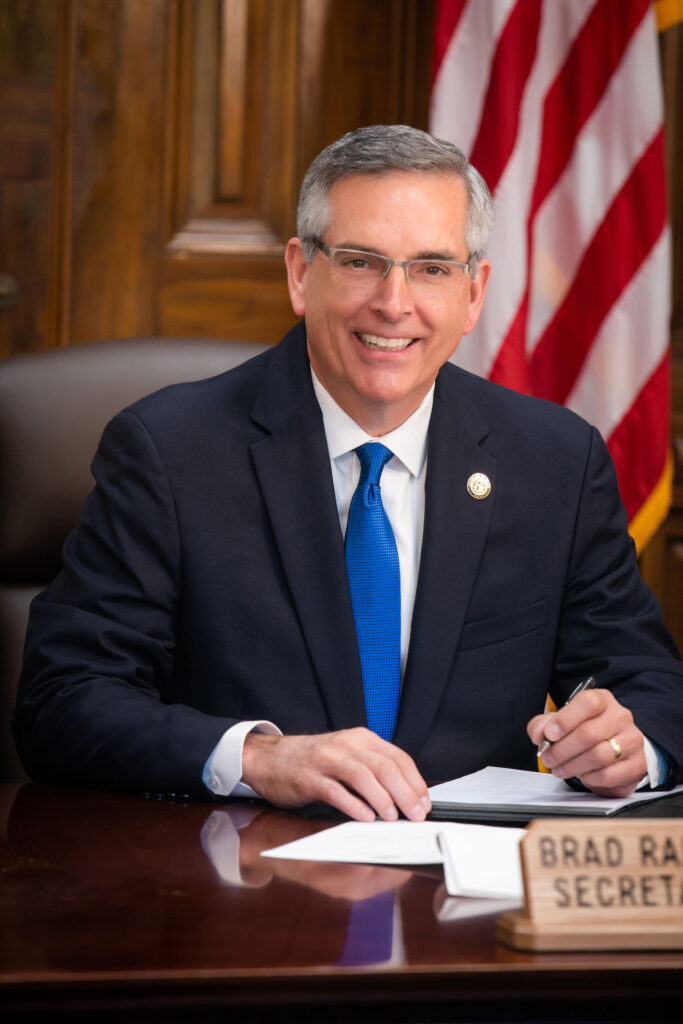Secretary of State: Getting rid of runoffs after November voting would give holiday-season pause from politics
By Dave Williams
Bureau Chief/Capitol Beat News Service

ATLANTA – Georgia Secretary of State Brad Raffensperger has renewed his call for the General Assembly to end general election runoffs in the Peach State.
In a statement released in December, Raffensperger said getting rid of runoffs following the November elections would give Georgians a holiday-season pause from politics.
“Next year, there will be a contentious presidential election – and families across Georgia will be settling down for the holidays shortly after,” he said. “Let’s give them a break and take another costly and unnecessary election off the Thanksgiving table. I’m calling on the General Assembly to visit this topic next session and eliminate this outdated distraction.”
Raffensperger raised the issue of runoffs last December after incumbent U.S. Sen. Raphael Warnock, D-Ga., defeated Republican challenger Herschel Walker in a runoff. However, it didn’t gain any traction during this year’s legislative session.
While some second-place finishers in general elections have gone on to turn the tables and win runoffs, Warnock finished first in both the 2022 general election and runoff, lending credence to the argument that general election runoffs are an unnecessary waste of tax dollars.
Georgia lawmakers have made changes to the vote threshold general election candidates must meet to avoid runoffs since 1968, when voters approved a constitutional amendment requiring the governor’s race to go to a runoff if none of the candidates received a majority of votes in the general election.
After Democratic incumbent Sen. Wyche Fowler lost to Republican challenger Paul Coverdell in a 1992 runoff, the General Assembly’s then-Democratic majority reduced the 50 percent-plus-one vote requirement to avoid a runoff to 45 percent. That worked out for the Democrats four years later when the late Max Cleland won the seat of retiring Sen. Sam Nunn with more than 45 percent of the vote but less than 50 percent.
Republicans responded to that 1996 loss when the GOP won control of the legislature in 2004. During their first legislative session in power, Republicans changed the requirement back to the 50 percent-plus-one threshold.
Georgia and Louisiana are the only two states that feature general election runoffs. A handful of other states – mostly in the South – limit runoffs to primary elections in which no candidate receives a majority of the vote.
